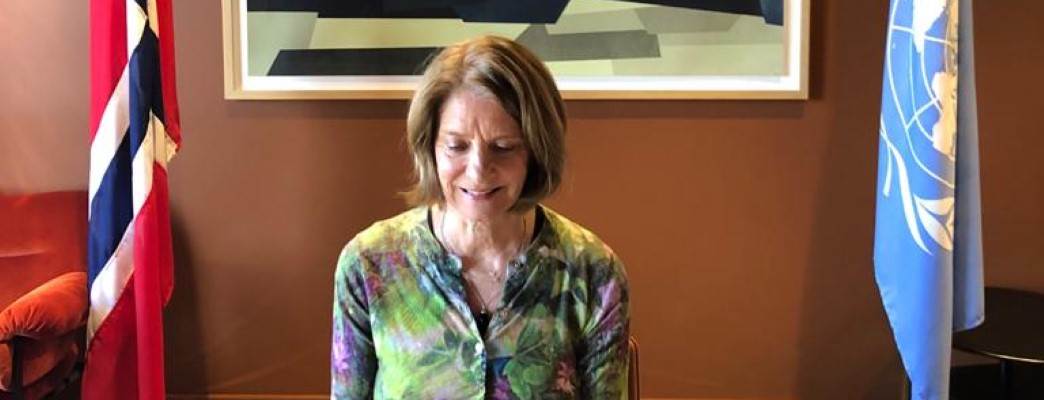Check against delivery
Thank you ambassador Hilale for organising this important event, and to speakers for sharing your perspectives.
Religious leaders enjoy widespread respect, trust and legitimacy. They, as well as non-government organisations, can play an important role in enhancing tolerance and promoting respect for religious and cultural diversity. And in making societies more inclusive. This is especially true in troubled times, and more needed than ever before.
We have seen a worrying trend of increased xenophobia, social stigma and hate speech during this pandemic. Religious leaders have an extremely important job in countering this divisive rhetoric and in uniting people – spreading a message of solidarity and hope, both at the local level, but also on the global stage.
Religious leaders are looked up to for guidance and leadership. When they speak up against intolerance, discrimination, stigmatization, hate speech and violence against minorities, people - also those in a position of power - listen.
Norway believes in the potential of interreligious and intercultural dialogue. Through dialogue we can enhance mutual understanding and promote tolerance and non-discrimination. Dialogue can have a considerable impact. It represents a possibility to seize the middle ground, and to challenge the dominance of the extremes. Norway is initiating, supporting and encouraging dialogue projects in several countries. Through these projects, we work closely with religious leaders in Norway and internationally. We have also financed the establishment of inter-religious councils in several countries, in the Middle East and the Horn of Africa, and in South Asia. We believe that interreligious dialogue is key to fight the pandemic, but also to build back better.
Faith-based organisations are a trusted and important ally in the response to the pandemic. Their work and contributions are vital in the humanitarian and socio economic response to this crises. An example is Norwegian Church Aid. Many of its partners are faith-based actors who have an especially important role to play now as the coronavirus crisis threatens people in developing countries. The organisation specialises in water, sanitation and hygiene, and we know access to water and improved hygiene will be crucial in this situation – not least for marginalised and vulnerable groups. This is why Norway is providing 170 million USD to the organisation for their work in sub Saharan Africa and other parts of the world.
Religious leaders have a an important job when it comes to encouraging people to make the necessary adjustments we all have to make to curb the spread of the virus. They have a platform for communication and enjoy the trust of the community, and with that a great responsibility. We are glad that the world regions share the commitment to help.
